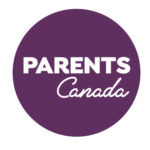Elementary
4 min Read
Internet Safety: Don’t throw away your privacy!

May 9, 2013
Elementary
4 min Read

May 9, 2013

Protect Your Password
Using someone else’s password or changing it without their permission is a common way for kids to abuse trust, even with good friends or siblings. Although it may be meant as a joke, it sets up a child to have their accounts mismanaged, their private information shared and their social networks used to cause trouble. Logging out is another great technique to ensure no one has access to your accounts.
Here’s a good way to manage passwords. Pick a single master password that you’ll be able to remember, and then customize that password for different websites. The first step is to choose a good master password that uses more than six characters and some combination of letters and numbers (rather than real words).
In this case, let’s use the phrase “I want to go to England.” Reduce that phrase to each of the first letters, use the number “2” for the word “to” and you’ll end up with “Iw2g2E”. Then add the first and last letter of the website to it (Symantec.com’s website would be: “SIw2g2Ec”). This little trick helps me remember all those various passwords and yet keep things complex enough that it’s hard for a computer hacker to crack. This sequence makes sense to me but not to anyone else. It also helps that I get different passwords for different accounts. If one password to one account is compromised, the rest are still secure.
It’s very insecure to keep track of passwords in a list stored on a computer, on paper notes next to the computer, and so forth. I suggest the Norton Identity Safe, a password management feature built-in to Norton 360 and Norton Internet Security software programs. Norton Identity Safe is also available as a free download at https://identitysafe.norton.com.
I mentioned earlier that your priority for unique and complex passwords should be for email and social networks but did you wonder why? If a hacker gains control of your email, they can change all your other passwords by clicking on the “forgot my password” link on the other websites. And if they gain control of your social network, they can scam or send dangerous links to all of your contacts.
Secure Your Wireless Network
Home wireless networks can present other security problems, and there’s a lot you need to do to ensure that they are secured from unknown intruders who might use your bandwidth, or worse, host their spam and other attacks from your system. Also, a laptop and a wireless network allow your children to access the Internet from all over your house, which makes your efforts to monitor their activities that much harder.
If you have wireless (“Wi-Fi”) at home, make sure you do everything possible to make it secure: reset the router password so it follows good password rules and isn’t easy to guess; enable wireless encryption to prevent a stranger from spotting your network from the Internet; restrict the access your system shares on the network and make sure your Internet security software is kept up-to-date. I know parents that have occasionally used the router’s controls to turn off access to their kids’ laptops, gaming devices and web-enabled music players at bedtime. It’s helped their kids to deal with temptations to chat and post late at night. Some parents also go so far as to disconnect their router and take it into their bedroom at night— whatever works for you is fine.
Both children and adults should have different email addresses for different purposes. For instance, it’s a good idea to have one address for online shopping, another for online banking, and another for corresponding with friends and family. That way, for example, if you receive a notice from your bank on your family email, you’ll know that it’s malicious spam that you should delete.
Make sure your children’s email accounts have the highest level of spam filtering turned on. According to a Norton research study, 80 per cent of children report receiving inappropriate spam on a daily basis. The Norton Cybercrime Index, a free tool that tracks and warns computer users about daily cybercrime risks around the world, reports spam regularly makes up about 80 per cent of the world’s emails. If your children aren’t old enough to ignore or delete spam (some of which can contain highly offensive images and content), don’t allow them to manage their own account. Avoid posting your email address online to prevent “screenscrapers” from adding you to their spam target list. Type your address online as “nameatispdotcom”.